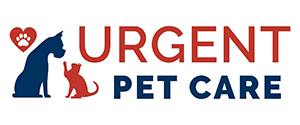- Do you subscribe to Dharma Dog Training’s Newsletter? You should.
- A Unique Campaign from The Humane Society of the United States
- Rabid bats in Omaha- Stay safe, prepared with these tips
- Springtime Activities in Omaha
- Mill Dog Monthly from Bailing Out Benji
- World Spay Day, Legislative Alert in Nebraska
- Attend the Nebraska Rescue Council’s monthly meeting this Saturday
- Five Hard-to-Ignore Reasons to Adopt!
- Paws in Pink to Benefit Breast Cancer Foundation
- VCA, Inc. Acquires MidWest Vet Specialists from Kansas State University
Let’s explore the raw diet for pets! Pros and cons of the practice

With each new development in pet care comes people who support it and others who don’t. Raw feeding is not exactly new, but its popularity is still growing among animal owners looking to find an edge in nutrition and diet. In light of recent findings calling into question the practice, we thought we’d get information out there for readers to consume.
Take a read below and get the story from one side, then the other. We’re not advocating for feeding raw or avoiding it; we’re only interested in information that can help animal owners choose what’s right for their pets.
First, take a peek at this information from a guest contributor Mary Whitman. Mary is a writer and editor based in Adelaide, South Australia. In her spare time, she likes to talk about Art and Sustainable Development. Her info highlights current research (with a helping of opinion) that argues the raw diet can put animals in danger. After, take a look at other information and links that detail benefits and more.
Scientists Confirm the Harm in Feeding Raw Pet Foods
One of the things that is all the rage these days is eating whole, healthy foods as opposed to high-calorie processed junk food. And it’s true that this way of eating comes with numerous health benefits, and it makes sense to extend this to our beloved pets. However, if you are doing this, you might be doing your dog or cat a huge disservice. New research suggest that feeding your pet raw diet can have a whole slew of effects which are detrimental to their health, seeing as raw meat can be full of bacteria and parasites.
According to scientists from Utrecht University, raw meat contains zoonotic bacteria and parasites such as Escherichia coli, Listeria monocytogenes, and even Salmonella. Even though you will come across plenty of pet owners championing the raw meat diet, there is very little evidence to suggest that it’s beneficial to your dog or cat. In fact, the US Food and Drug Administration advises strongly against it. So, who should you trust?
Why Raw Pet Foods Are Harmful
In order to come up with solid answers, we’ve gotten help from https://www.assignmentgeek.com.au, which is a service that specializes in researching and writing scientific papers, to provide us with useful data. According to one of the researchers at Utrecht

Mary Whitman
University, Paul Overgaauw, who is a practicing veterinarian, raw meat diet is not only harmful to cats and dogs, but it can also pose a potential threat to their owners. He explains that even though the animal might not get sick or experience any of the symptoms associated with these microorganisms, pets can be carriers of the disease which can have a much more dramatic effect when inside a human host.
How exactly did Overgaauw and his colleagues arrive to his conclusion? They have tested 35 samples of frozen pet foods containing raw animal content, such as meat and bones from chicken, beef, lamb, and horse, among others. In addition to finding the bacteria already mentioned in this article at levels above the threshold for human consumption, they were also able to find two types of parasites: Sarcocystis cruzi and Toxoplasma gondii in about 11% and 6% of the frozen foods, respectively.
Another body of research which provides more solid data against raw meat pet diets is a two-year study done by the FDA Center for Veterinary Medicine (CVM). Their study was much more thorough, since it included over 1,000 samples which were tested for bacteria, and the results showed that raw food was more likely to contain bacteria which were the cause of numerous diseases. The study lasted from October 2010 to July 2012. Raw meat products were included in the study during the second year, and 196 samples were tested. Although CVM’s usual procedure includes the testing for Salmonella, they have started testing for Listeria monocytogenes for the first time.
In total, there were 15 samples which tested positive for Salmonella, and as much as 32 samples which tested positive for Listeria monocytogenes. According to Dr. Reimschuessel, who took part in the research, pet owners had a higher risk of contracting the aforementioned bacteria, since they had to handle the raw food and feed it to their cats and dogs.
There is another study which has been conducted in Australia, which contributes to the mounting evidence against feeding raw meat products to your dog. The researchers were looking to establish a connection between severe neurological diseases in dogs, such as Acute Polyradiculoneuritis (APN) and the presence of the bacterium Campylobacter sp, which has been found to trigger the Guillain-Barré Syndrome, which is a disease found in humans that is similar to APN.
The results showed that dogs which had APN showed a higher likelihood of having Campylobacter that their non-infected counterparts. Another correlation was established, which showed that dogs with APN were very likely to have been fed raw meat. While this study hasn’t come up with a definitive conclusion that feeding your dog raw meat causes it to develop APN, there is enough evidence to suggest a strong association, and you don’t need much more than that in order to start taking better care of your pets.
The proponents of raw meat diets list the benefits, but there is very little evidence to support their claims. On the opposite end of the spectrum, there is a growing body of evidence which shows that pet diets based on raw meat can cause them serious harm. The positive effects of raw meat, according to the above research, are marginal when compared to the risks.
You might argue that dogs and cats are carnivores and that their bodies are built for digesting raw meat. However, dogs and cats have been domesticated a long time ago, and they have since grown accustomed to a different diet and lost some of the characteristics that their feral ancestors had. Also, you have no idea on knowing whether the animal that the meat comes from had been thoroughly inspected, and whether the meat had been exposed to parasites and bacteria at some point, before it reached the store.
Summary
Until there is a raft of research which confirms that feeding your pet raw meat is not only completely safe, but also beneficial, you should avoid it and feed your cats and dogs cooked and/or processed foods. Their lives are too precious, and you don’t want to jeopardize them with some dangerous new fad.
As for the other side of the argument, see this article we published some time back. There’s some great commentary from a guest contributor who covered benefits and risks in some anecdotal and science-based conversations. Within the article is more information from links (most of which makes a case for the benefits of feeding this diet) that can help you sort through the choice of feeding raw.
Latest News
-
3 Tips for Pet Owners on Training Rescue Dogs
Owning a rescue dog can take some work compared to...
- Posted 3 weeks ago
- 0
-
Choosing the Right Pet for Your Lifestyle
Are you thinking about getting a pet but unsure what...
- Posted 1 month ago
- 0
-
How to Make Your Rescue Pet as Comfortable as Possible
Did you bring home a new pet from a shelter...
- Posted 2 months ago
- 0
-
How Having A Pet Can Change Your Life
Having a pet can open your heart in ways that...
- Posted 7 months ago
- 0
-
How To Improve The Life Of Your Senior Pet
Do you have an elderly fur baby and want to...
- Posted 8 months ago
- 0
-
Springtime Activities To Enjoy With Your Furry Friends
Are you preparing for warmer weather and want some ideas...
- Posted 9 months ago
- 0
-
Pros And Cons Of Microchipping Your Pets
Have you considered whether your pets should be microchipped and...
- Posted 9 months ago
- 0


















You must be logged in to post a comment Login